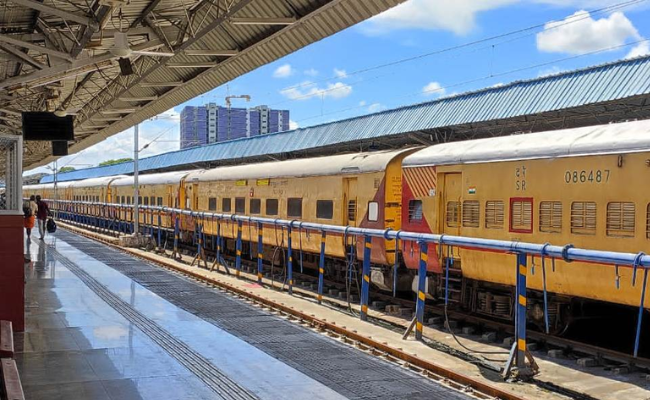Abhishek Banerjee slams sports, film celebrities for silence over Manmohan Singh’s death
.gif)
.gif)

In October 2024, Eastern Railway apprehended 1.868 lakh passengers for travelling without tickets or with unbooked luggage, a 2.1% increase from 1.829 lakh cases recorded in the same month in 2023. This increase highlights the Railway’s ongoing efforts to address the pervasive issue of fare evasion and ensure compliance with travel regulations across its network.
Eastern Railway has implemented a comprehensive strategy to combat ticketless travel, which includes regular ticket checking operations, fortress inspections, and the deployment of special ticket-checking trains. These special trains are deployed to stations with high foot traffic and remote locations, ensuring thorough coverage of the entire network. The Railway also conducts magistrate-led checks, which give added authority to the ticket inspections and enable swift action against offenders. In addition, ticket checking staff have been equipped with the latest technology to quickly identify passengers travelling without tickets or with unbooked luggage.
The division-wise breakdown of the 1.868 lakh detected cases is as follows:
These figures reflect the varied levels of enforcement and ticketless travel detection across Eastern Railway’s divisions. Howrah Division reported the highest number of cases, likely due to its proximity to the city and the higher volume of passenger traffic.
Eastern Railway’s strategy not only involves strict enforcement but also a strong focus on passenger awareness. Awareness campaigns have been launched across major stations, urging passengers to purchase valid tickets before boarding trains. The Railway emphasizes that purchasing a valid journey ticket is not only a legal requirement but also a measure to ensure the safety and smooth operation of the railways. This push aims to replace the common practice of ticketless travel with responsible, rule-abiding behaviour among passengers.
Further, random ticket checks are carried out across various stations and trains, both during peak and off-peak hours, to ensure that fare evasion does not go undetected. These random checks also help in identifying areas with recurring violations, allowing the Railway to adjust its strategies accordingly. The authorities have also raised the penalties for fare evasion, making it financially unfeasible for individuals to continue the practice.